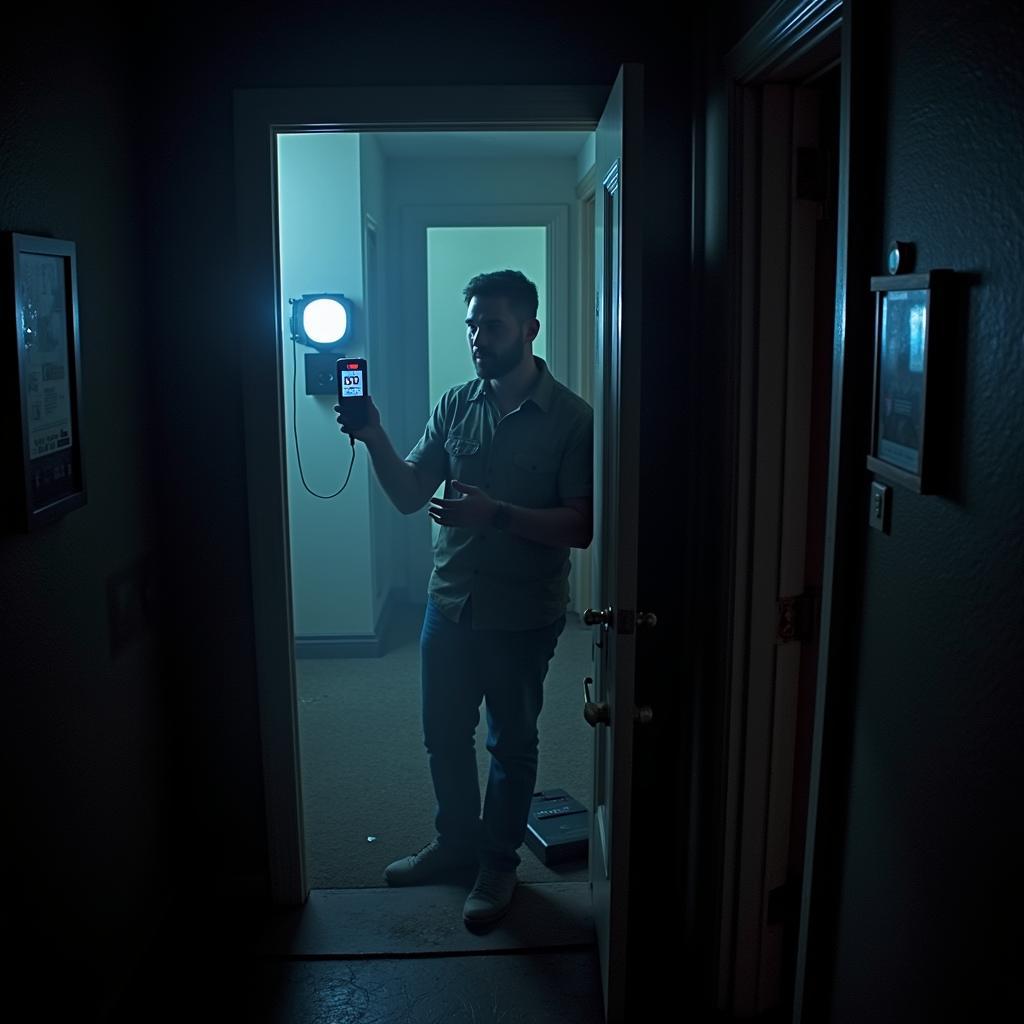Empirical research questions form the bedrock of scientific inquiry, driving investigations based on observable evidence and measurable data. These questions, focused on real-world phenomena, seek to understand, explain, and predict events and behaviors by collecting and analyzing tangible information. academic research definition is crucial to understanding how empirical research functions within a broader academic context.
Exploring the Nature of Empirical Research Questions
At the heart of any empirical research project lies a well-defined research question. Unlike theoretical or philosophical inquiries, empirical research questions must be testable through observation or experimentation. This means the questions must be specific enough to allow for data collection and analysis, leading to concrete conclusions. For instance, a question like “Do ghosts exist?” is not an empirical research question because it lacks a measurable component. However, a question like “What environmental factors correlate with reported paranormal experiences in a specific location?” is empirical because it focuses on measurable variables.
 Examples of Empirical Research Questions in Paranormal Investigations
Examples of Empirical Research Questions in Paranormal Investigations
Crafting Effective Empirical Research Questions in Paranormal Studies
Formulating a robust empirical research question is an art. It requires careful consideration of the research topic, available resources, and ethical implications. The question must be clear, concise, and focused. It should also be grounded in existing literature and relevant to the field of study. Consider, for example, the question, “Does the presence of electromagnetic fields influence the perceived intensity of paranormal activity?” This question is both specific and measurable, making it suitable for empirical investigation. It also builds upon the existing body of knowledge in paranormal research, making it a valuable contribution to the field. Furthermore, understanding the principles of directed research can be highly beneficial when designing and executing these types of investigations.
What are some examples of empirical research questions related to paranormal phenomena?
Some examples include:
- What is the correlation between reported EVP (Electronic Voice Phenomena) and specific acoustic environments?
- How do changes in barometric pressure affect the frequency of reported poltergeist activity?
- Is there a statistically significant relationship between lunar cycles and reported sightings of cryptids?
These questions provide clear, measurable variables, allowing researchers to collect and analyze data, potentially leading to a deeper understanding of these phenomena. Exploring non empirical research also provides a contrasting perspective, highlighting the importance of empirical methods in scientific investigations.
Analyzing Empirical Data in Paranormal Research
Once data is collected, the next step is analysis. This often involves statistical methods to identify patterns, correlations, and significant differences. While the results of empirical research can provide valuable insights, it’s essential to acknowledge the limitations inherent in studying paranormal phenomena. The subjective nature of experiences, the difficulty in replicating experiments, and the potential for bias all pose challenges to paranormal researchers. Understanding the body of knowledge meaning in research allows for a better understanding of the context and relevance of empirical findings.
How do researchers ensure the validity of empirical data in paranormal investigations?
Researchers employ various strategies to enhance the validity of their findings, including:
- Using multiple data collection methods (triangulation)
- Implementing blind or double-blind experimental designs
- Employing rigorous statistical analysis
- Seeking peer review and critical evaluation of their work
These practices help to minimize bias and increase the reliability of empirical research in the often-controversial field of paranormal studies.
 Analyzing Empirical Data in Paranormal Research
Analyzing Empirical Data in Paranormal Research
Conclusion: The Importance of Empirical Research Questions in Paranormal Studies
Empirical research questions play a crucial role in advancing our understanding of paranormal phenomena. By focusing on measurable variables and rigorous data analysis, researchers can move beyond speculation and towards a more evidence-based approach to exploring the mysteries of the unknown. While challenges remain, the pursuit of empirical evidence offers the best hope for unraveling the enigmas that lie at the heart of paranormal research. Questions such as these, rooted in empirical observation, are essential to advancing knowledge and understanding in any field, including the study of paranormal phenomena.
FAQ
- What is the difference between empirical and non-empirical research?
- Can empirical research prove the existence of ghosts?
- What are some common challenges in conducting paranormal research?
- How can I get involved in paranormal research?
- What are some ethical considerations in paranormal research?
- What are some Examples Of Empirical Research Questions in other fields?
- Where can I find more information on empirical research methods?
Have you ever wondered about psychology research questions for college students? This resource can provide further insight into how empirical research questions are formulated and applied in other fields of study.
For assistance with your Paranormal Research or if you have experienced something unexplained, please contact us. Phone: 0904826292, Email: research@gmail.com or visit us at No. 31, Alley 142/7, P. Phú Viên, Bồ Đề, Long Biên, Hà Nội, Việt Nam. Our team is available 24/7.